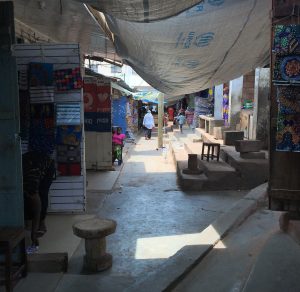Learn more about the Epidemic Intelligence Service (EIS) program!
The EIS program is a two-year, on-the-job training and service fellowship which recruits and trains health professionals to be ready responders in areas including infectious and noninfectious diseases, global health, injury prevention, environmental health, and occupational health. EIS Officers (EISOs) are leaders in assisting with domestic and international public health responses. This program gives EISOs an opportunity to learn how to solve the most complicated public health problems in the event of a health threat or disease outbreak. But primarily, EISOs learn to apply epidemiological principles to their work through research and hands-on experience. Did this program catch your attention? Learn more about the EIS program here.
What is a better way to learn about the program than from an EIS fellow herself? I talked to an IU alumnus and current EISO, Rena Fukunaga, Ph.D., who gave us tips and insights about the EIS program and its application process.

Rena, who is on the right, at work in Tanzania.
How did you learn about the EIS program?
Several friends that were familiar with the EIS program encouraged me to apply since I was working towards changing disciplines and moving into the field of public health. After speaking with several EISOs and learning more about the opportunities at CDC, I felt that the EIS program was the best fit for my next phase of training and starting a new career in public health.
Can you give us an overview of the application process?
The application period opens early May and closes around the end of June. Selected applicants are interviewed in September at CDC headquarters in Atlanta, Georgia (applicants pay their own travel expenses). The EIS program notifies applicants of their status between November to December (accepted, rejected, wait-listed). If you are applying, please check the EIS website for updated application deadlines and decision dates since they are subject to change.
What are some tips you can give to prospective applicants?
EIS is a competitive training program that garners considerable interest among clinicians and researchers cutting across various fields of study. If you are interested in applying, I would recommend that you speak with current or past EISOs to learn more about the program, and think through why and how EIS can add to your next phase of training and overall career goals.
You mentioned about the program being competitive. How can someone improve their portfolio or application to be among the best candidates?
Learning about past EIS class compositions and speaking with EIS alumni about the experiences and training I received thus far helped me to decide when it was the right year to apply. I kept in mind that my portfolio could always be strengthened. If I did not get in then my plan was to seek feedback from the program on how to strengthen my application and reapply.

A still taken in Tanzania.
How important are statistical skills when doing this type of work?
They are very important. Public health responses are data-driven. Through hands-on training, EISOs apply epidemiologic strategies to public health problems. Some of the valuable experiences EISOs gain, in general, include developing questionnaires, analyzing data, identifying causes of disease outbreaks, recommending control measures, providing public health guidance, as well as working with state, local, tribal, and territorial health departments.
What are the skills you have built upon within the EIS?
One of the first skills I learned on the job was how to conduct a surveillance evaluation. I have also gained valuable fieldwork experience in sub-Saharan Africa, collaborating with in-country partners on projects monitoring and evaluating programs aimed to improve maternal and perinatal mortality and morbidity.
What are the job prospects after completing an EIS program?
EIS officers have taken job posts at CDC headquarters or campuses, and other health departments. Some have taken positions in non-governmental organizations, academia, industry, as well as other governmental agencies. The EIS office is supportive of any direction the EISO takes after completing the EIS program although historically most officers have chosen to stay at CDC in Atlanta.

Rena Fukunaga
Bio: Dr. Fukunaga is an Epidemic Intelligence Service Officer on the Global Reproductive Health Evidence for Action Team (GREAT) in the Division of Reproductive Health at the Centers for Disease Control and Prevention. Dr. Fukunaga holds a dual-Ph.D. degree in Neuroscience and Clinical Science from Indiana University and a Master’s degree in East Asian Studies from the University of Michigan. She completed her psychology internship at the University of Washington School of Medicine and subsequently worked as a research postdoctoral fellow at Harvard Medical School. Prior to joining EIS, Dr. Fukunaga’s research focused on examining the underlying neural correlates of cognitive control, specifically identifying the brain regions involved in risk/reward processing using neuroeconomic paradigms in both healthy and clinical populations. After a decade of conducting neuroimaging research, Dr. Fukunaga began a new career at the CDC by learning to apply epidemiological methods to solve public health problems. As an EIS officer for the GREAT team, Dr. Fukunaga is involved in the monitoring and evaluation of programs in global maternal, newborn, and child health (MNCH), which aims to reduce child and maternal mortality, improve maternal health, and progress toward sustainable development goals.

Trishnee
A Marsian… (a Mauritian) working on her Ph.D. in Bloomington, Indiana!


